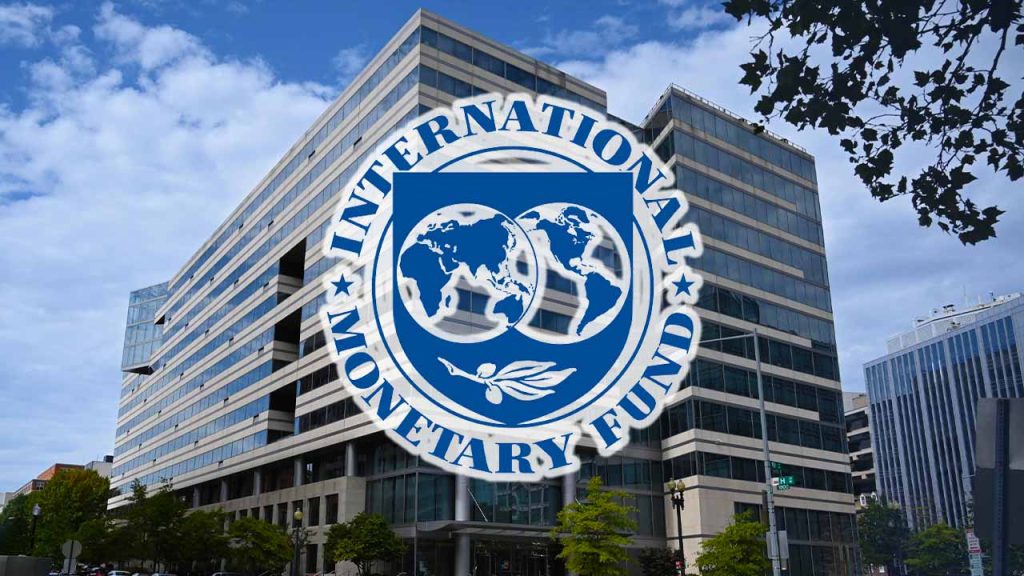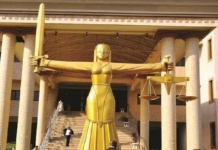
By Olakunle Agboola – For decades, Africa has lived in the shadow of financial institutions that claim to offer salvation but often deliver servitude. The International Monetary Fund and the World Bank, both created in the aftermath of World War II, have emerged not as neutral financial entities but as tools of geopolitical control, used by the West, particularly the United States, to exert influence over developing nations.
At the heart of this power dynamic lies debt. For Africa, borrowing has become a modern form of bondage. It is not merely about loans or interest rates. It is about control, economic, political, and ultimately ideological. The West, particularly the United States, remains largely immune to the constraints of debt because it controls the global financial architecture, including the almighty dollar. In contrast, African countries that borrow in dollars but earn in weaker, volatile local currencies find themselves trapped in a vicious cycle of repayment, dependency, and underdevelopment.

The International Monetary Fund and the World Bank were ostensibly created to foster global financial stability and assist countries in distress. However, from their inception, these institutions have served Western interests. Governance structures within both bodies are weighted heavily in favor of wealthy nations, with the United States wielding veto power in the International Monetary Fund. This means that any African nation receiving funds does so not just under economic conditions, but often under political terms that align with Western agendas.
Debt as a Weapon, Not a Solution
In the 1980s and 1990s, the destructive nature of this relationship became glaringly obvious through the implementation of Structural Adjustment Programs, widely known as SAPs. These policies, promoted aggressively by both the International Monetary Fund and World Bank, forced African governments to privatize state-owned enterprises, slash public spending, remove subsidies on essential services, and devalue their currencies. On paper, these reforms were designed to promote economic growth and efficiency. In reality, they hollowed out social services, fueled inequality, and stripped governments of their ability to protect vulnerable populations.
Recent analyses by the World Bank indicate that structural adjustment programs have not consistently achieved their intended outcomes of poverty reduction and sustainable economic growth. In Sub-Saharan Africa, for instance, the World Bank’s April 2024 Africa’s Pulse report highlights that while economic activity is projected to rebound to 3.4% in 2024, this growth remains insufficient to significantly reduce poverty levels. The report emphasizes that the pace of economic expansion is below the growth rate of the previous decade (2000–2014) and underscores the need for transformative policies to address deep-rooted inequalities.
Furthermore, the World Bank’s October 2024 report on global poverty notes that progress in combating poverty has stalled since 2019, with nearly 700 million people still living on less than $2.15 a day. The report attributes this stagnation to a combination of factors, including debt burdens, climate crises, and the lingering effects of the COVID-19 pandemic. It also highlights that extreme poverty is increasingly concentrated in low-growth, fragile countries, many of which are in Sub-Saharan Africa. These findings suggest that the structural adjustment policies promoted by international financial institutions have not effectively addressed the challenges of poverty and economic instability in the region.
Selling Out the Future
The fallout was immediate and devastating. Hospitals were underfunded. Schools deteriorated. Millions lost jobs as public institutions were sold off or shut down. Countries that once sought loans to build were instead forced to dismantle. As African leaders tried to appease the International Monetary Fund in order to unlock more funding, they sacrificed long-term development goals for short-term financial appeasement. Meanwhile, multinational corporations from the West exploited the vacuum, buying privatized assets at bargain prices and extracting massive profits with little reinvestment in local economies.
In this web of economic manipulation, natural resources have become both a blessing and a curse. Africa is home to vast deposits of oil, gold, diamonds, and rare minerals such as lithium and cobalt, resources critical to the global economy. However, under the International Monetary Fund and World Bank regime, African nations have been encouraged to export these resources in raw form rather than develop the capacity to refine or process them locally. This arrangement keeps African economies reliant on low-value exports while Western industries reap the high-value returns from manufacturing and technology based on these raw materials.
Lessons from Within
Despite this bleak pattern, not all African nations have walked blindly into the trap. Botswana, for example, offers a notable counter-narrative. After gaining independence in 1966, Botswana made a conscious decision to steer clear of International Monetary Fund loans. Instead, it invested in infrastructure, education, and the careful management of its diamond wealth. The country maintained a consistent growth rate, built strong institutions, and emerged as one of Africa’s most stable economies. Botswana’s model, while not perfect, proves that alternative paths exist, paths grounded in national sovereignty, prudent leadership, and long-term vision.
In recent years, a bolder resistance has been brewing, particularly in the Sahel region. Countries like Burkina Faso, Mali, and Niger have begun pushing back against the International Monetary Fund and other forms of Western influence. These nations have not only questioned the wisdom of borrowing from institutions with strings attached but have also taken steps to expel foreign military forces and challenge exploitative economic agreements. Their decisions mark a shift from dependence to defiance, signaling a growing appetite for true self-determination.
The Awakening
This resistance is not without its challenges. The pushback against Western influence often invites sanctions, diplomatic pressure, or even covert destabilization efforts. However, the determination of these nations reflects a broader continental awakening. Across Africa, citizens are becoming more aware of the role that global finance plays in perpetuating inequality. The internet, social media, and independent journalism have all contributed to a surge in civic awareness, making it increasingly difficult for corrupt leaders to operate in secrecy or for external powers to manipulate entire populations unnoticed.
The unfortunate reality is that many African leaders have historically enabled this system by acting as intermediaries for foreign interests. These individuals sign away national assets, take on unsustainable loans, and implement unpopular policies in exchange for personal gain or international favor. But the tide is turning. As young Africans demand accountability and transparency, the days of unchecked political puppetry are slowly drawing to a close.
The Road Ahead
To move forward, Africa must shift its strategy. The International Monetary Fund and World Bank will not disappear overnight, but their influence can be significantly reduced if African nations begin to act collectively and assertively. Strengthening indigenous financial institutions such as the African Development Bank will provide countries with alternative sources of funding that are more aligned with continental interests. Creating mechanisms for intra-African trade can reduce dependence on Western markets, allowing African nations to buy, sell, and invest in one another. This would keep wealth circulating within the continent rather than being siphoned off by foreign powers.
Industrialization is another essential piece of the puzzle. African countries must prioritize refining their own resources and building industries that produce finished goods. By doing so, they can create jobs, retain value, and protect themselves from the volatility of raw commodity prices. This requires deliberate investment, supportive policies, and an unwavering commitment to economic independence.
The issue of currency is also critical. As long as Africa remains tethered to the dollar and euro, it will remain vulnerable. Exploring regional currencies or even a pan-African digital currency could provide greater monetary stability and reduce the stranglehold of Western finance. These are ambitious goals, but they are not impossible.
Ultimately, the only real solution is unity. A fragmented Africa will always be easier to manipulate. A united Africa, one that speaks with a common voice and acts with a shared purpose, becomes an entirely different proposition. That is a force that cannot be easily bullied, bought, or bypassed. Unity must not just be a dream preached in speeches or written in constitutions. It must be pursued in policy, practice, and principle.
Africa is not a continent in need of rescue. It is a continent in need of freedom. That freedom will not come from another loan, another summit, or another handout. It will come from within, from the realization that sovereignty, not charity, is the path to lasting development.
The International Monetary Fund and World Bank may still dominate global finance, but their grip on Africa is weakening. What comes next depends on the choices African nations make, the courage of their leaders, and the strength of their people’s will.
The time for dependency is over. The age of African self-determination has begun.









